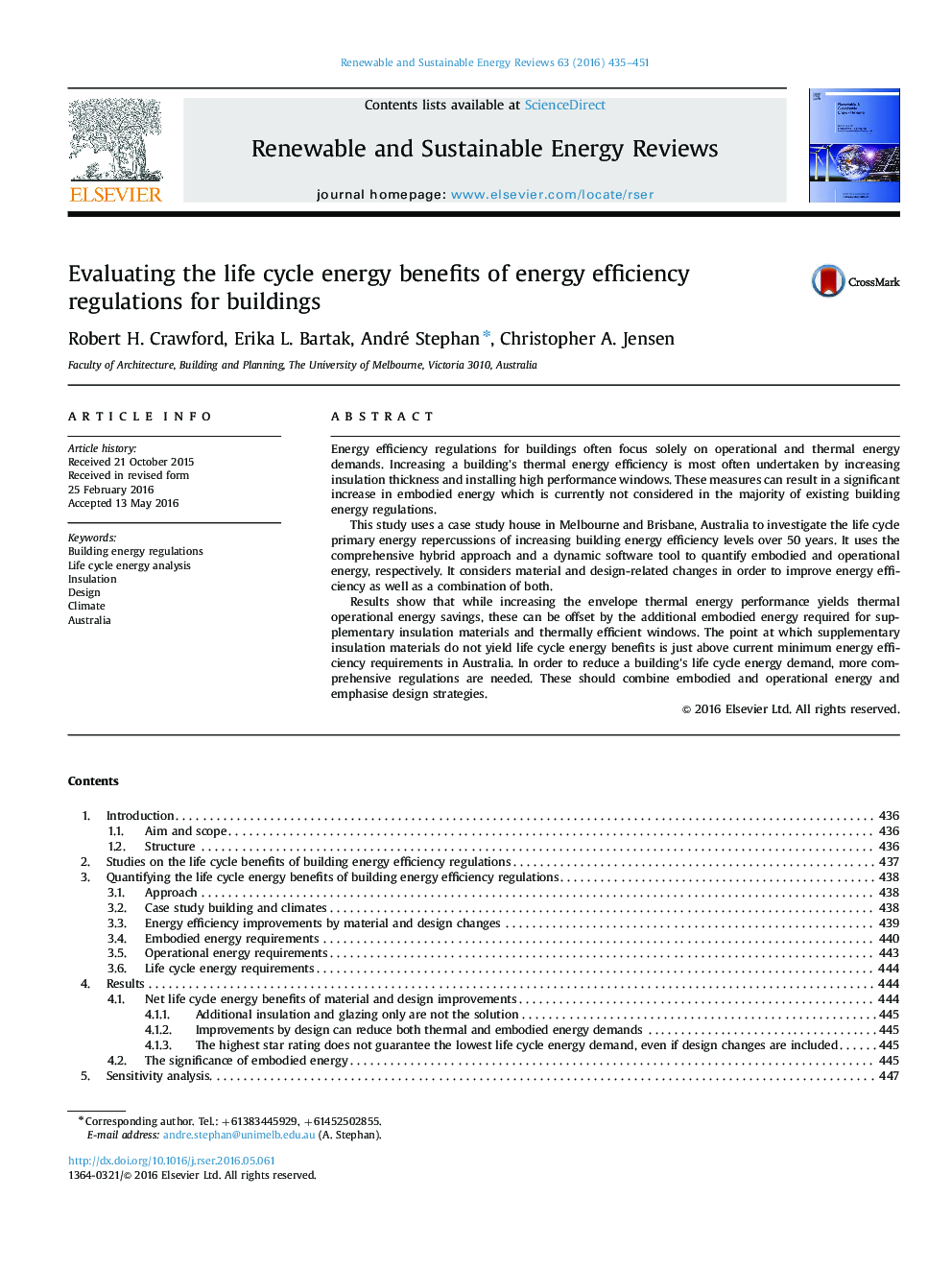| Article ID | Journal | Published Year | Pages | File Type |
|---|---|---|---|---|
| 8113344 | Renewable and Sustainable Energy Reviews | 2016 | 17 Pages |
Abstract
Results show that while increasing the envelope thermal energy performance yields thermal operational energy savings, these can be offset by the additional embodied energy required for supplementary insulation materials and thermally efficient windows. The point at which supplementary insulation materials do not yield life cycle energy benefits is just above current minimum energy efficiency requirements in Australia. In order to reduce a building׳s life cycle energy demand, more comprehensive regulations are needed. These should combine embodied and operational energy and emphasise design strategies.
Related Topics
Physical Sciences and Engineering
Energy
Renewable Energy, Sustainability and the Environment
Authors
Robert H. Crawford, Erika L. Bartak, André Stephan, Christopher A. Jensen,
